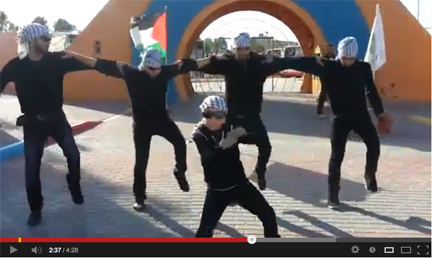
“If your regime is not strong enough to handle a joke, then you don’t have a regime.” Such was the sentiment of satirist Jon Stewart, who made a surprise appearance on the popular Egyptian television comedy show, al-Barnamaj, starring Bassem Youssef. If the Arab Spring protests were not simply an exercise resulting in one kind of intolerance replacing another, then this may be one of the most important lessons to be learned from the prevailing winds of post-people-revolution hopes. Obviously Moubarek did not handle jokes well, nor did Ben Ali, nor Qaddafi, nor Ali Abdullah Salih. Neither does Bashar al-Asad, who is desperately trying not to be the next ex-dictator in the Middle East. But then the ruling parties in the Islamic Republic are not exactly comedy-friendly. Bin Laden was the butt of millions of jokes, but it is hard to imagine him having success as a stand-up comedian.
The irony is that most of the people I have met in Egypt and Yemen are fond of jokes and have a rich tradition making fun of those in power, corrupt regimes and religious hypocrisy. Many have a sharp edge of “othering” one group or another, but some are self-deprecating. Satire has a way of getting to the crux of problems, which is probably why it is so irritating to those in power. Consider the following joke about the Syrian regime of Hafez al-Asad, a joke I heard from a Lebanese friend when Syria was basically in control of much of Lebanon.
The heads of the CIA, the KGB and the Syrian intelligence agency met at a conference and were bragging about their abilities to track down and find terrorists. Continue reading The right barnamaj for Egypt


 Sleeping With the Enemy? Review of “”Would You Have Sex With an Arab?
Sleeping With the Enemy? Review of “”Would You Have Sex With an Arab?


